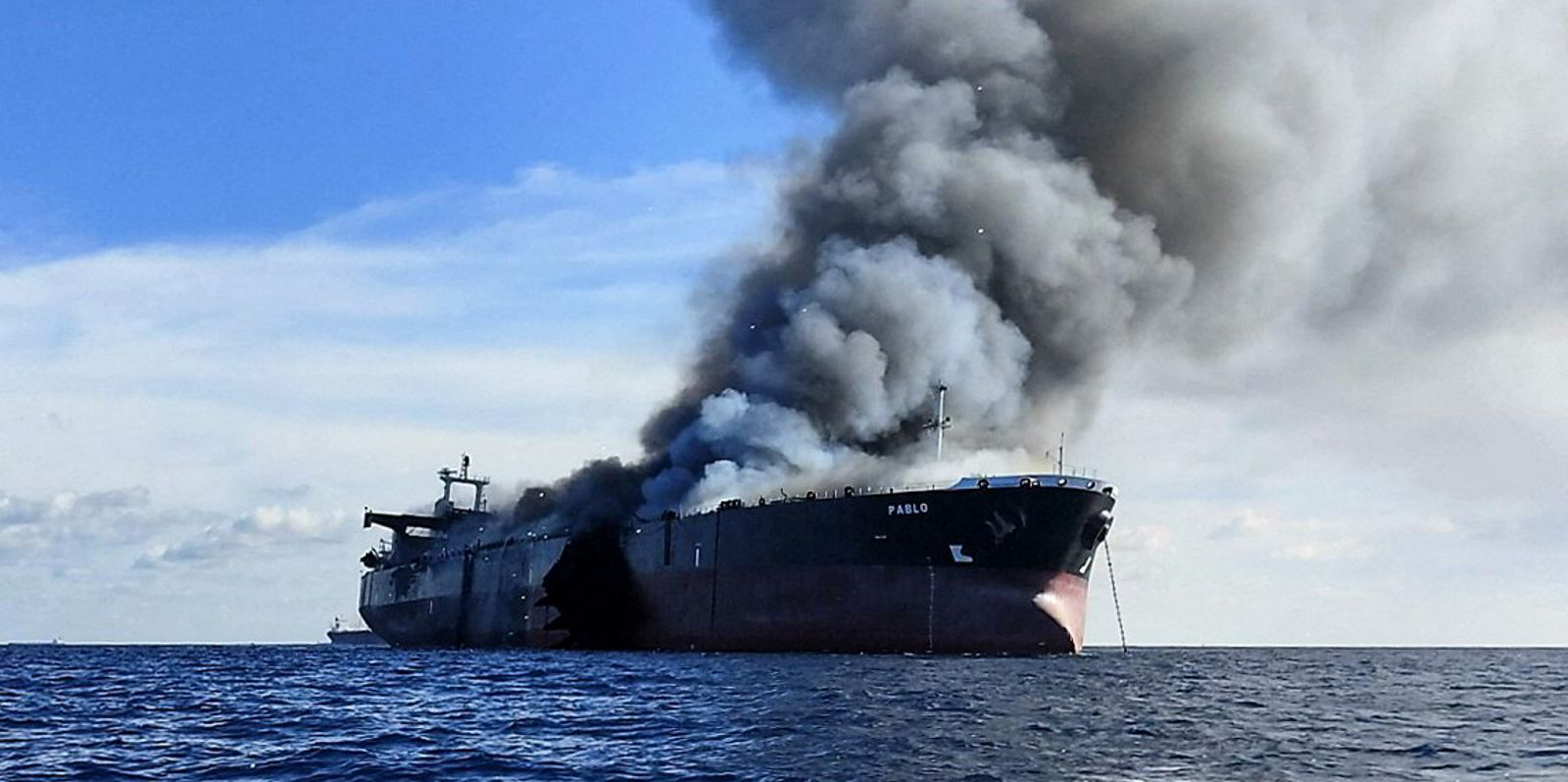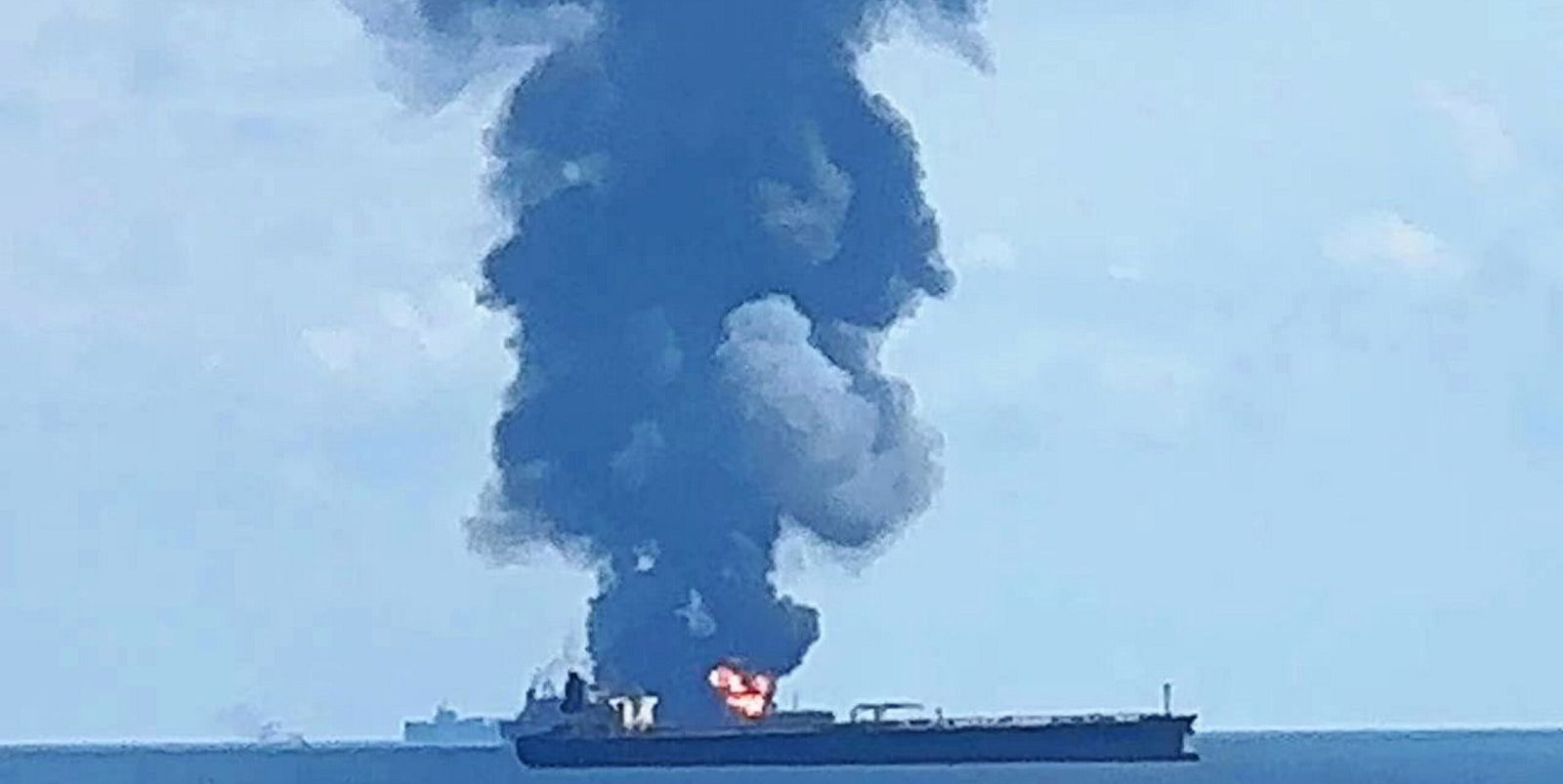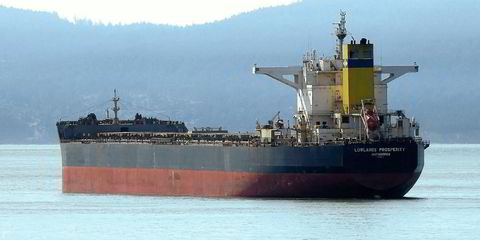An aframax tanker that exploded and caught fire off the coast of Malaysia was stripped of its flag three times in 16 months following claims of involvement in trading sanctioned Iranian crude.
The 96,800-dwt Pablo (built 1997) was deleted from three different registries from June 2021 to October 2022 following its alleged involvement in sanctioned ship-to-ship oil transfers and an Iranian port call, said United Against Nuclear Iran (UANI) which has been tracking its movements.
Three crew members on Monday were reported missing and 25 more were rescued after the Japanese-built tanker exploded and caught fire in the South China Sea at an anchorage 75km off Pulau Tinggi, close to the entrance of the Singapore Strait.
The Pablo’s insurer is not known. A search on the database of the International Group of P&I Clubs does not show the vessel under the Pablo name.
The vessel first came to the attention of the US-based pressure group for its alleged Iran trades in April 2020.
The group wrote to the Cameroon registry in November 2020 saying it had identified the Pablo — then named the Adisa — in a ship-to-ship oil transfer with a second tanker that had visited the Iranian port of Bandar Mahshar.
Iranian oil was subject to US sanctions that were re-imposed two years earlier by former president Donald Trump after he pulled out of a 2015 agreement to lift the punishing economic measures in return for controls on Iran’s nuclear industry.
Cameroon deleted the vessel from the registry the following July. The vessel reflagged with the Cook Islands registry, which was contacted by UANI in September 2021 after it was identified by the group at the Iranian port of Bandar Abbas.
UANI CEO Mark Wallace told the registry that the ship, then named Helios, was involved in spoofing — a technique to disguise its location by tampering with AIS.
A photograph of the vessel at Bandar Abbas “clearly shows the vessel being concealed by an orange tarpaulin cover in an attempt to mask its identity”, according to the letter sent to the registry seen by TradeWinds.
The ship, re-named as the Mockingbird, subsequently re-flagged with the Zanzibar Maritime Authority of Tanzania.
The authority deleted the ship from its registry in October 2022, two months after the Iranian port call was again highlighted by UANI.

In its letter to the shipowner, the authority said that the vessel was suspected to be involved in the illicit transfers of Iranian petroleum products.
“In that respect, Zanzibar Maritime Authority has struck off from its registry your vessel… effective from the date of this letter,” said the letter.
“This implies that the ship is no longer entitled to fly the Tanzania flag in its operation.”
The tanker, finally as Pablo, re-registered with the Gabon registry in March 2023.
Authorities said they had conducted due diligence on the vessel and had a letter of undertaking that the vessel would abide by all UN, EU and US sanctions programmes. The registry last month said it would continue to monitor the ship closely.
Red flags
“With four different flags since 2021 … and no known insurance, these should have been huge red flags to the industry,” said Claire Jungman, of UANI.
“This is a warning that we need to figure out a way to combat and crack down on these ghost ships which could lead to more and more of these disasters.”
Vessel tracker MarineTraffic shows the Pablo sailed from Zhoushan in China and anchored off Pulau Tinggi on 30 April. It was bound for the United Arab Emirates.
Singapore’s Maritime & Port Authority said 18 of the seafarers were rescued by Rose Shipping’s 301,000-dwt tanker MS Enola (built 2002), with another seven rescued by another ship that it did not identify.
IHS Markit lists Pablo Union Shipping as the owner and ship manager of the Marshall Island-registered tanker.
Pablo Union Shipping was registered this year and is believed to be a special purpose vehicle for the crude carrier.
The ship has had frequent changes of ownership and management in less than five years since it was sold by the Onassis Group to Priority Shipping.





